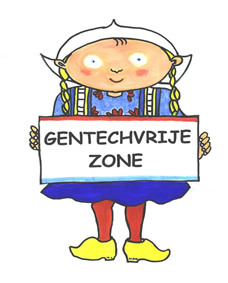Hoewel de universiteit niet voor honderd procent uitsluit dat een deel van de schade door actievoerders is aangericht, zoals aanvankelijk met stelligheid door VROM werd verkondigd, staat het vast dat hazen de appelbomen hebben aangevreten.
Bron: Volkskrant, 8-2-2005: Genbomen opgepeuzeld door hazen
Zie ook de NRC, 7-2-2005: Gen-appelveld vernield door hongerige hazen .

